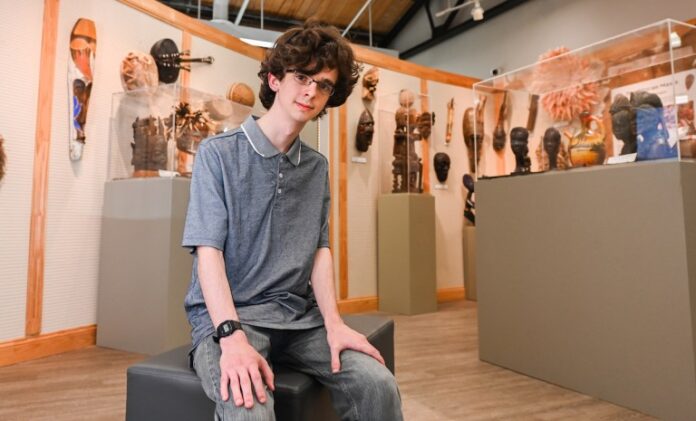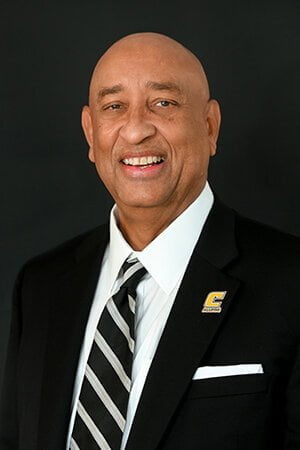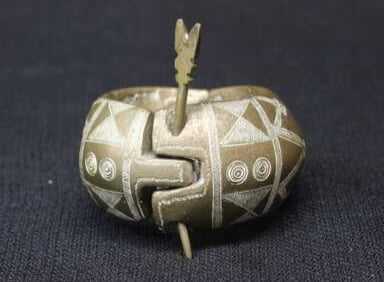
By Shawn Ryan
Over the summer, Maxwell King was immersed in the history of Chattanooga.
It may seem odd that a sophomore majoring in computer science at the University of Tennessee at Chattanooga would dive into the city’s past, but King was using his tech skills.
As an intern in the city’s Bessie Smith Cultural Center, which focuses on the history of blacks in Chattanooga, he helped digitize its massive collection of artifacts, photos and artwork, a task that hadn’t been done until now.
Some of the history was totally new to King.
“I was learning to effectively research topics I know nothing about–traditional African art, African American music history, African American local history,” he said. “The most surprising, memorable thing I cataloged was an original map of downtown Chattanooga from 1880.”
King was the first student in the College of Engineering and Computer Science selected for the Small-Business Intern Initiative Fund, established with a $25,000 donation from Atlanta-based KaZee, the largest minority-owned software development company in the country.

Albert Woodard, a 1974 graduate from UTC with a bachelor’s degree in industrial engineering, is founder and chief executive officer of Atlanta-based KaZee, which provides information technology products and services to the health-care industry.
“It is important to future generations that we record and display the contributions and history of Chattanooga’s black community,” Woodard said. “The Bessie Smith Cultural Center provides a balanced historical perspective as well as an educational venue for arts and the exchange of ideas.”
The KaZee fund will financially support paid internships with preference given to small, minority-, women- and disabled-owned businesses with less than 25 employees and $5 million in annual revenue.
Tyler Broome, digital media specialist at the Bessie Smith Cultural Center, said King was “a huge help to us with this project.”
“Maxwell’s drive, willingness to learn and genuine interest in history really shined through during his time here,” Broome said. “He did research on almost every item he touched. He learned what the artifact was, how it was used, and what significance it had for Chattanooga’s African American History.”
During his internship, King catalogued almost 1,000 pieces of history at the center, Broome said, “as well as assisted us with the finishing touches on our brand-new exhibit ‘Chattanooga’s Black Soundtrack,’” Broome said.
King said he archived photos of black Chattanoogan musicians such as Usher, singer and composer Roland Hayes–namesake of the concert hall in the UTC Fine Arts Center–and Russell Goode, a music teacher at Howard High School.
Photos also documented local history such as the Martin Hotel, once the largest African American hotel in the South and located on what is now M.L. King Boulevard in front of the Bessie Smith Cultural Center.
Others were taken outside of Chattanooga.
“One photo I remember well is one of two Congolese fishermen from the 1930s,” King said.
Along with photos, King also cataloged African instruments such as a masenqo, a single-stringed instrument with an animal-skin resonator and a harp with an animal-skin stand.
“The items I cataloged were all to remain in storage, with the idea being that, if they wanted to put something on exhibit, they would be easier to find.”
The Bessie Smith Cultural Center was created 39 years ago, Broome noted, and only a fraction of the details and history of its large collection has been saved in digital form. Most of it is on paper and “mostly handwritten,” he said.
“Archiving and digital preservation is a necessity. Over time, paper, wood and organic materials erode and disintegrate,” Broome said. “By digitizing photos and documents and photographing artifacts, it allows us to ensure that there will always be a copy of that piece of history in our archive digitally.”


